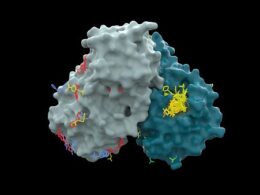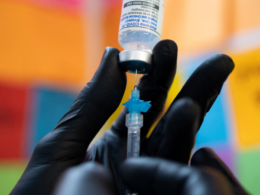The UK should invest in the development and manufacture of oral antivirals in the same way it did for vaccines, McKernan added.
Pharmaceutical Technology
By Darcy Jimenez
30 Dec 2021
“We haven’t seen similar investments in the next generation of antiviral drugs. And I would like to see more government investment in that,” she told the Financial Times.
“I think that would help our biotech industry and help us create products that are suitable for the UK and for export.”
The UK BioIndustry Association, founded over 25 years ago, is a life sciences trade association that represents members ranging from biotech start-ups and pharma companies, to universities and research centres.
UK secures antiviral supply
The UK government already has pre-existing orders of oral antivirals from Merck and Pfizer, despite Pfizer’s antiviral drug still undergoing UK regulatory review.
Pfizer’s Paxlovid (nirmatrelvir) secured emergency use authorisation from the FDA on December 22.
Following an initial purchase by the UK of 480,000 courses of Merck’s Lagevrio (molnupiravir) in October, it increased its order this month to a total of 2.23 million courses.
The government also pre-ordered up 250,000 courses of Paxlovid in October, and has since made additional purchase agreements that will see the country receive 2.75 million courses of the drug following regulatory approval.
But McKernan said the UK should devote funding to the development and manufacture of oral Covid-19 antivirals in the same way it did for vaccines.
This month, in response to the growing threat of Omicron, the government entered additional contracts to boost the country’s vaccine supply and support its booster shot rollout.
The new vaccine deals include 60 million extra doses of Moderna’s mRNA vaccine Spikevax and 54 million additional jabs of Pfizer and BioNTech’s mRNA vaccine Comirnaty, which will be delivered to the UK in 2022 and 2023.
The UK had already purchased 35 million extra Pfizer doses in August, as well as 60 million Novavax doses and 7.5 million jabs from GlaxoSmithKline and Sanofi, all expected to arrive next year.
Merck and Pfizer lead the antiviral race
McKernan’s comments come after evidence has suggested that authorised Covid-19 vaccines offer lowered protection against the Omicron variant.
Oral antivirals are particularly valuable because they can be administered at home in the early stages of infection, preventing the need for hospitalisation and reducing the burden on health services during the pandemic.
Lagevrio, which the UK was the first country in the world to approve, was greenlit in November.
The drug has been found to reduce hospitalisation and death by 30% — however because it works by introducing mutations into the virus’ DNA, it is not recommended for those who are pregnant or breastfeeding in case it harms the foetus or baby.
As for Paxlovid, analysis of Phase II/III trials have shown the treatment reduces death and hospitalisation by almost 90% in non-hospitalised, high-risk adults with Covid-19 treated within three days of symptoms.
Data from Pfizer has also suggested that Paxlovid offers protection against SARS-CoV-2 variants of concern, including Omicron.
Molnupiravir is a nucleoside analogue that mimics some of the base molecules of RNA, allowing it to enter the virus’s RNA and cause mutations until the virus can no longer reproduce.
Meanwhile, Paxlovid is a combination of Pfizer’s investigational antiviral PF-07321332 and a low dose of the antiretroviral ritonavir.
The treatment disrupts the replication of SARS-CoV-2 in the body by binding to the 3CL-like protease, a crucial enzyme in the function and reproduction of the virus.
Originally published at https://www.pharmaceutical-technology.com.
Names cited
UK BioIndustry Association chair Ruth McKernan
Financial Times












